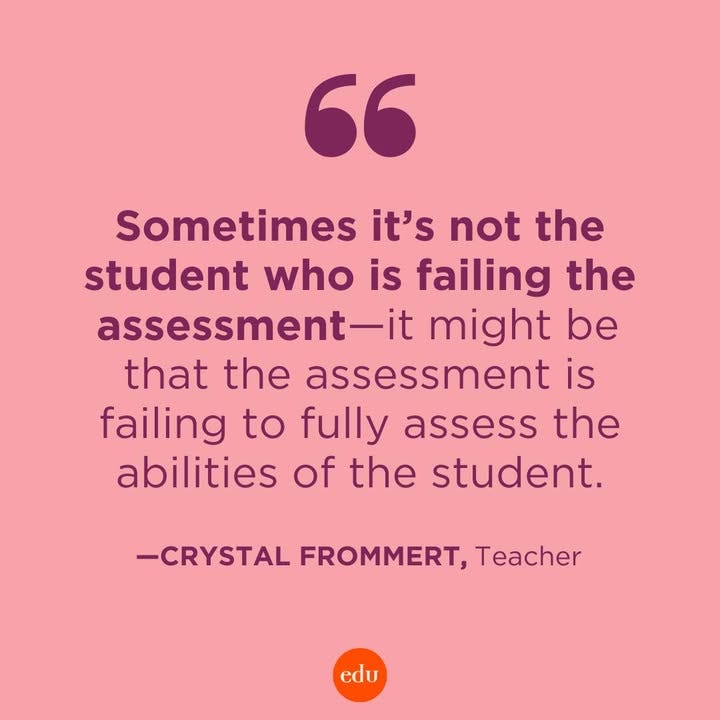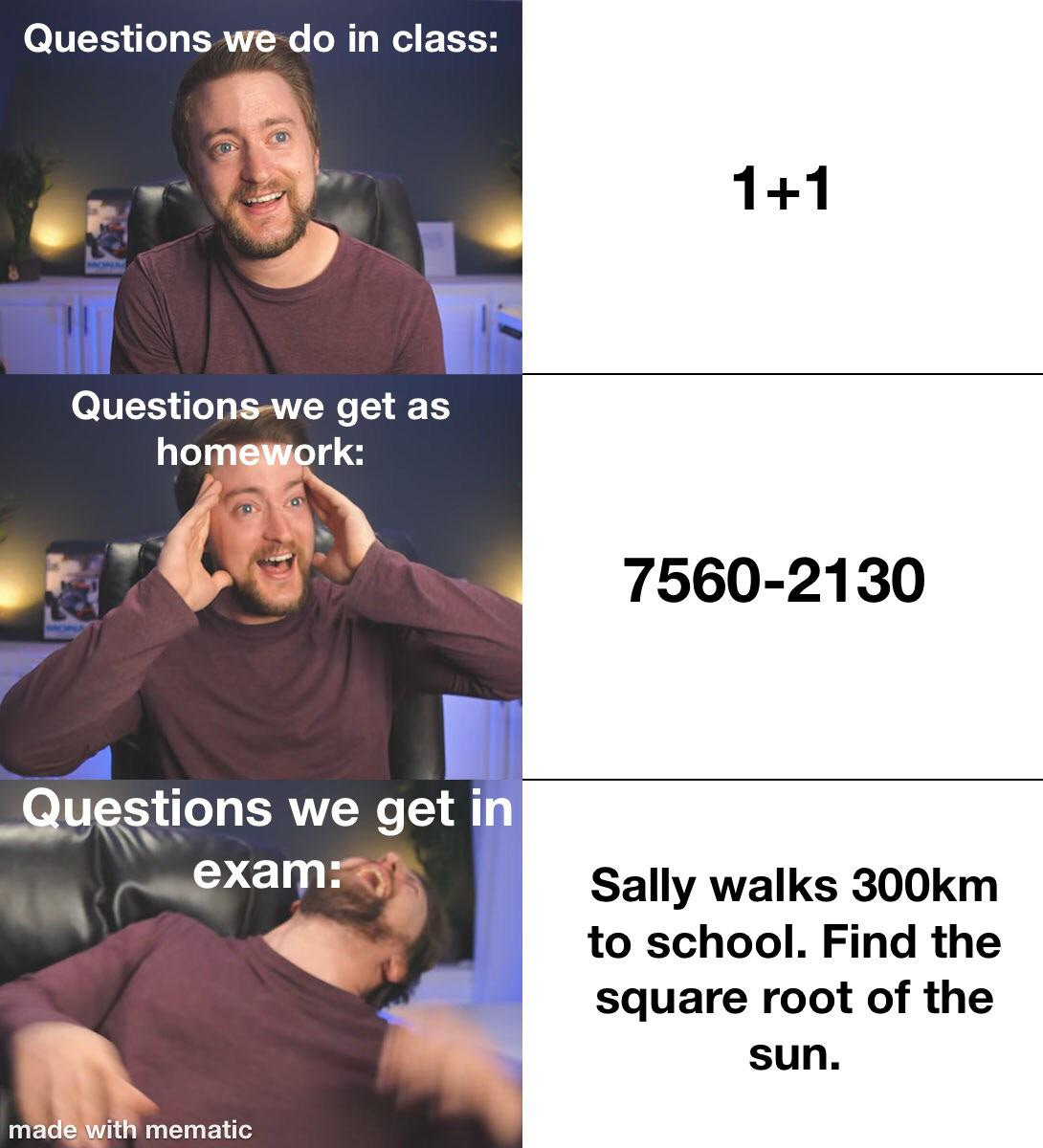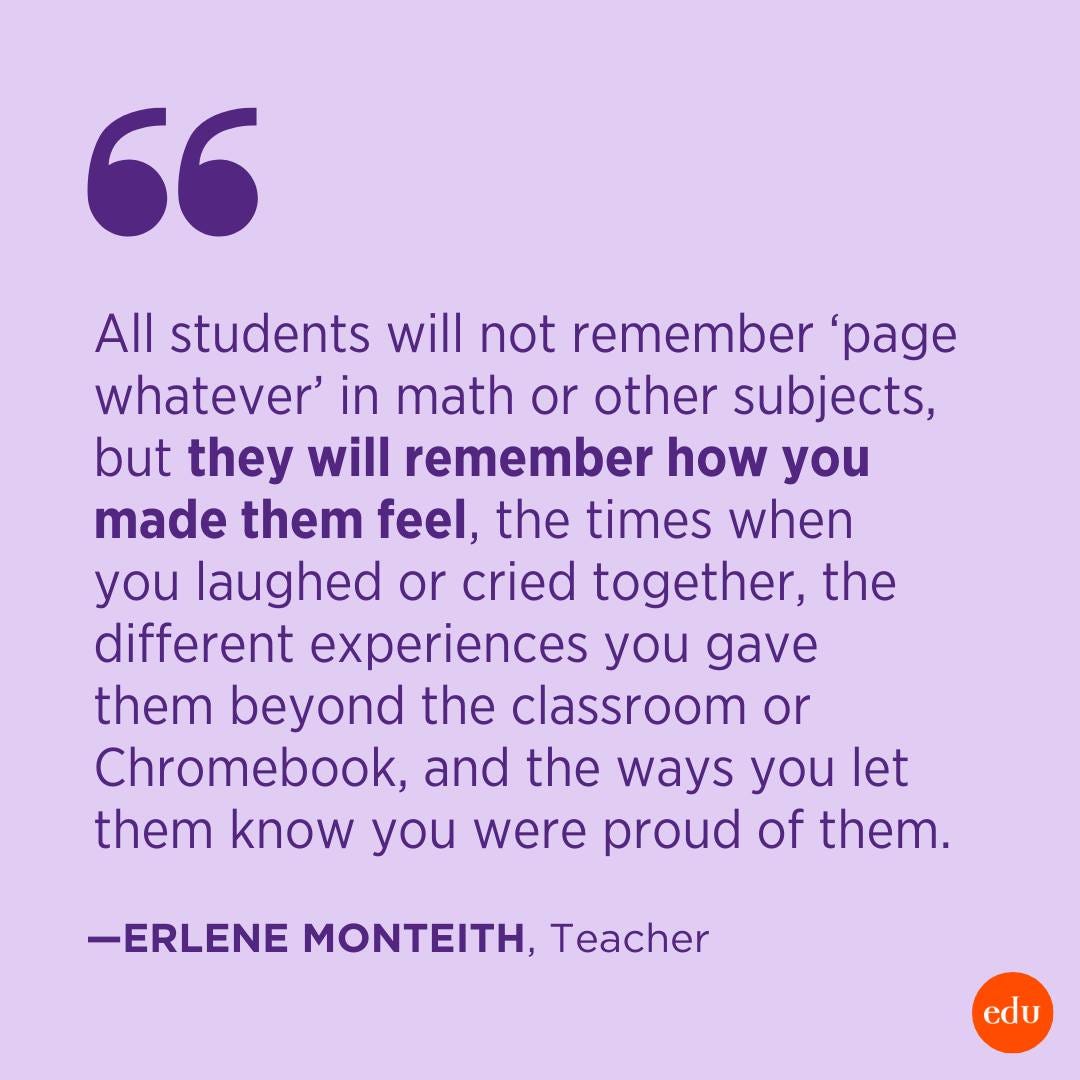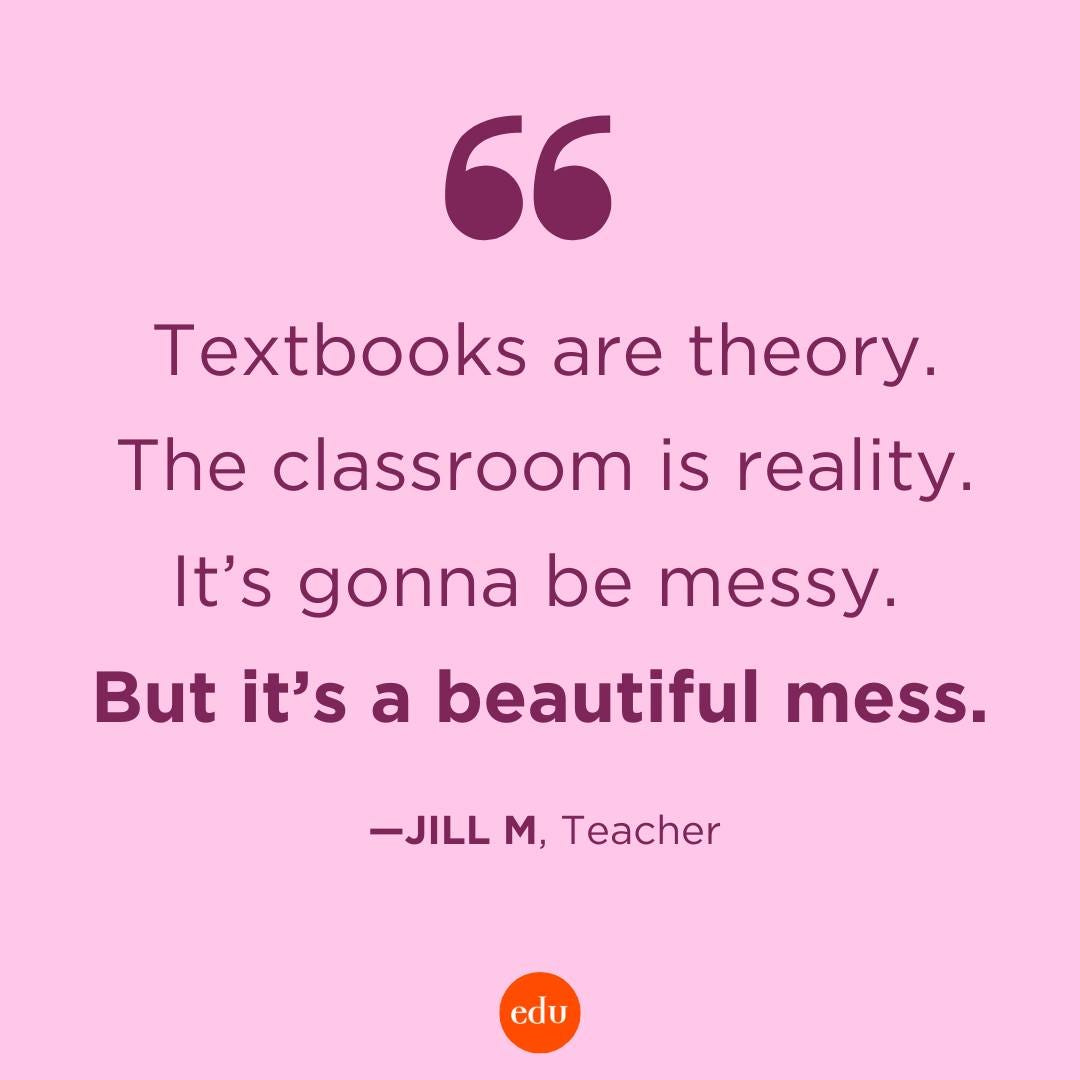Romantic Idea 7:
“Sometimes it's not the student who is failing the assessment—it might be that the assessment is failing to fully assess the abilities of the student.”
First, let’s not forget: romanticism is about feel-good-ism, not logical consistency. If the idea makes a romantic educator “feel” morally superior, they will stick with that one.
Therefore, they put effort on shifting the responsibility of learning away from the learners and into something external (in this case: assessment). It’s self-esteem over performance. It’s participation over standard evaluation. It’s an innocent student over the system.
Likewise, many romantic educators believe in Gardner’s multiple intelligences theory, which suggests that standardized tests don’t measure all forms of intelligence. The above quote fits that narrative perfectly, even if it’s misleading.
Upon careful inspection, we can see the major flaw in the quote is that it assumes “all students are equally capable, but they are misunderstood by the test”. So if a student fails, it’s the test’s fault, not the student’s.
This is like saying, “It’s not that I failed the driving test; it’s that the test failed to recognize my unique way of driving.”
Of course, not every assessment is perfect. It can be flawed and misaligned with the learning objective, content knowledge/skills, and evaluation criteria.
Like this meme:
Similarly, the purpose of an assessment is not to assess every form of intelligence. Assessment in schools is about checking domain specific knowledge and skills.
And to be realistic, school assessments cannot reliably test students’ non-academic characteristics, dispositions, and values. Yes, it’s important that students are kind and honest, but it won’t make sense either if they can’t pass Physics test.
But passing a challenging Physics test is also an additional proof of students’ self-belief, perseverance, and stress management.
Therefore, instead of blaming the assessment, we can shift the focus on making assessment fair, valid, and reliable so that it can reveal the knowledge-skill gap in every student. So that it can help every student get the critical reality check about their learning progress (or lack of it).
Lastly, life is full of tests: job interviews, fitness requirements, cut-throat negotiations.
If students can’t handle school assessments, how will they handle life’s real challenges in a world that doesn’t lower its standards?
Romantic Idea 8:
“All students will not remember ‘page whatever’ in math or other subjects, but they will remember how you made them feel, the times when you laughed or cried together, the different experiences you gave them beyond the classroom or Chromebook, and the ways you let them know you were proud of them.”
I almost cried twice reading this one.
But I get this.
Romantic educators love this quote because it aligns perfectly with their feelings-first philosophy of teaching. It resonates with them because it prioritizes emotion over knowledge; feeling over content; and sentimentality over academic rigor.
Again, upon careful examination, we can clearly see how this quote is misleading and might even have an agenda.
It assumes that emotional experiences and intellectual development are mutually exclusive. The presupposition is clear: explicit teaching is dry, dull, and uninspiring thus students don’t get to learn anything meaningful.
Yes, emotions (may) matter—but not at the cost of actual learning. Yes, teachers have to be supportive—but their primary job is to ensure students are learning concepts and skills. No, the goal of school isn’t simply to “make students feel good.” A school is not a cafe.
Here’s my version which Edutopia will never feature:
“Students will remember the teachers who challenged them, the lessons that shaped them, and the skills that boosted their self-confidence. They may not remember every fact, every formula and every theory, but they will be able to use the knowledge, discipline, and problem-solving skills they gained for the rest of their lives.”
Romantic Idea 9:
"Textbooks are theory. The classroom is reality. It's going to be messy. But it's a beautiful mess."
I understand why this quote would resonate with romantic educators. Because they usually prioritize messiness of learning experience over clear instruction and structure.
They also believe learning should be natural, spontaneous, and organic. And that learning should be not be confined within the structure of a prescribed curriculum.
Plus, this quote hits the right emotional chord, reframing messy as beautiful and even desirable in the learning process.
Now let’s break it down.
The quote deliberately separates theory (textbooks) from reality (classroom). But in reality, theory informs practice. A classroom without theory is just trial and error, not education.
Imagine a surgeon saying, “Medical textbooks are just theory. The operating room is reality. It’s messy, but a beautiful mess.” That would be insane.
But only educators can get away with such un-professional belief.
Similarly, calling something a “beautiful mess” makes disorder and chaos sound noble instead of inefficient and ineffective.
But only educators can get away with incompetence and a complete lack of responsibility.
This quote also suggests that all students love the messy classroom, and as a result, all students thrive in the so called beautiful mess.
And lastly, the quote hints that textbooks are useless or detached from reality, which is totally false. Textbooks distill years of knowledge into structured learning, preventing students from reinventing the wheel through unnecessary struggle. Let’s not forget that we are all standing on the shoulders of the giants.
A conscious teacher would know that learning involves both theory and practice. They are not opposites. No matter how romantic educators love to distort the nature of (academic) learning, structure doesn’t kill creativity. It actually enables fluency, automaticity, and mastery.
Picasso has a better quote than this: learn the rules like a pro, so you can break them like an artist.
I want to emphasis this:
A well-run classroom by an effective and competent teacher is not a chaotic mess but a structured environment where learning actually happens.
And even when there seems to be a mess, it’s a carefully planned mess. Designed by the teacher to move the students towards the learning goals.
p.s.
* Bad assessment does exist.
* Positive relationship with students does matter.
* Learning in the academic (context) is different. Most educators, it seems, are unaware of David Geary’s theory of biologically primary and biologically secondary skills.








